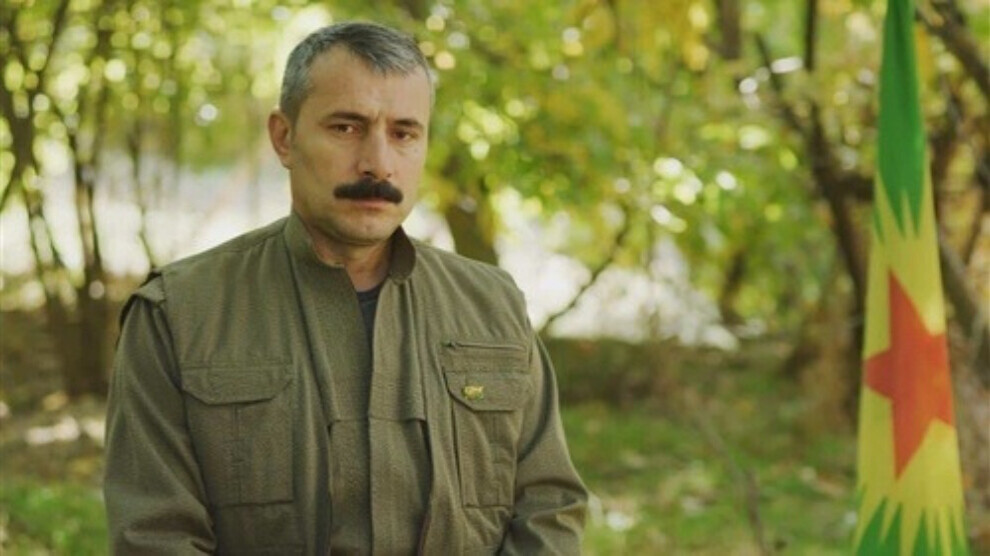KCK Spokesperson refutes claims Maher al-Assad hosted in Qandil
The PKK denies any presence in Syria, urging an end to foreign intervention and warning of Turkey's military activities near Mosul.
The PKK denies any presence in Syria, urging an end to foreign intervention and warning of Turkey's military activities near Mosul.

The Kurdistan Workers' Party (PKK) categorically denied allegations that Maher al-Assad, the brother of Syria's former dictator Bashar al-Assad and head of the Fourth Division, is hiding in Iraq’s Qandil Mountains under PKK control. Speaking exclusively to The New Arab, Zagros Hiwa, spokesperson for the Kurdistan Communities Union (KCK), dismissed the claims as "baseless and politically motivated".
"These claims are part of a psychological warfare operation against the Kurdistan Freedom Movement," Hiwa stated. "I categorically deny the reports regarding the presence of former Syrian government authorities in Medya Defence Zones (guerrilla-held areas in northern Iraq)."
The accusations, first reported by Saudi outlet Al-Hadath, allege that Maher al-Assad and former Syrian National Security Bureau chief Ali Mamlouk met with Iranian Revolutionary Guard Corps (IRGC) officers and Hezbollah operatives in Qandil. Both the PKK and Kurdish officials rejected the claims, labelling them as "fabricated".
Hiwa also outlined the logistical implausibility of the allegations. "Medya Defence Zones have no airports and are hundreds of kilometers away from Damascus. The borders between Syria and Iraq are heavily fortified by KDP and Iraqi forces, under constant surveillance by the anti-ISIS Coalition," he said. "Former Syrian Baathist officials could not simply walk or fly to Qandil unnoticed."
"Our political relations with the Syrian regime ended long ago," Hiwa emphasised. "Many of our cadres were arrested by the Syrian regime and handed over to Turkey, where they remain imprisoned."
The Iraqi government and the Patriotic Union of Kurdistan (PUK) also staunchly dismissed the claims. Brigadier General Muqdad Miri, spokesperson for Iraq's Interior Ministry, called the accusations "completely unfounded," urging media outlets to rely on credible sources.
Saadi Ahmed Pira, spokesperson for the PUK, echoed these sentiments. "The PUK abides by Iraq's laws and would never host figures like Maher al-Assad," Pira told TNA last week. "These claims are ridiculous and likely motivated by financial incentives to defame our party."
Hiwa alleged that Turkey, with KDP support, has expanded its influence in northern Iraq, annexing Kurdish land and establishing military outposts near Mosul. He warned of broader geopolitical consequences.
"If there is going to be a bleak scenario for Iraq, it hinges on the AKP-KDP-ISIS axis. Turkey has already deployed thousands of jihadist fighters and fortified its military presence in northern Iraq," he claimed, "I think they are waiting for the green light from those who lit it for HTS. The best way for Iraqi authorities to prevent this scenario is to abolish the capitulation agreement that was signed with Erdogan on 22 April this year."
Hiwa criticised Turkey's actions, accusing Ankara of exploiting peace rhetoric to mask aggressive policies. "Turkey uses peace rhetoric as a tool for psychological warfare while waging a war of political and cultural genocide against the Kurds," he said. "They bomb northern Iraq and Syria daily, killing civilians and targeting Kurdish areas with chemical weapons."
"We have no active presence in Syria now. We spearheaded the fight against DAESH and helped the Kurds and other peoples in Syria defeat this Turkey-backed terrorist group," he stressed, "With the new reality in Syria, we think that all foreign intervention must end and the territorial integrity and unity of Syria should be respected. We support a model in which all the peoples can live peacefully together based on democratic self-rule for all the religious and ethnic groups."
Hiwa stressed the importance of a democratic resolution to regional conflicts. "Syria's peoples have suffered from nationalism and sectarianism. We advocate for a democratic model where all ethnic and religious groups can coexist and rebuild the country together," he said.
On Iran, Hiwa called for systemic reforms, rejecting foreign intervention as a solution. "The only viable path forward is democratization, closing prisons, abolishing capital punishment, and releasing political prisoners," he added.